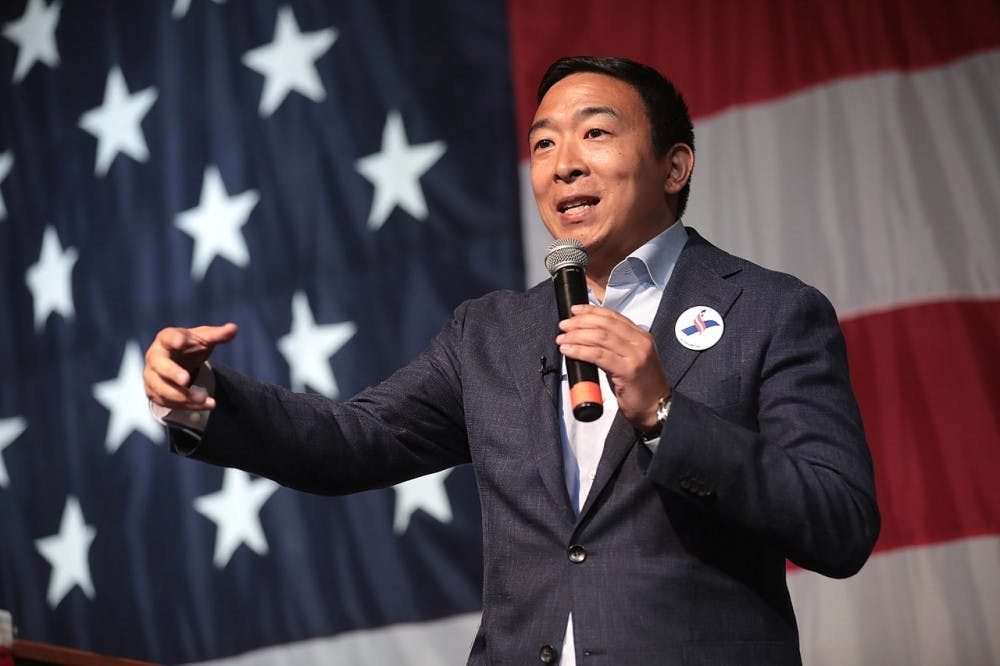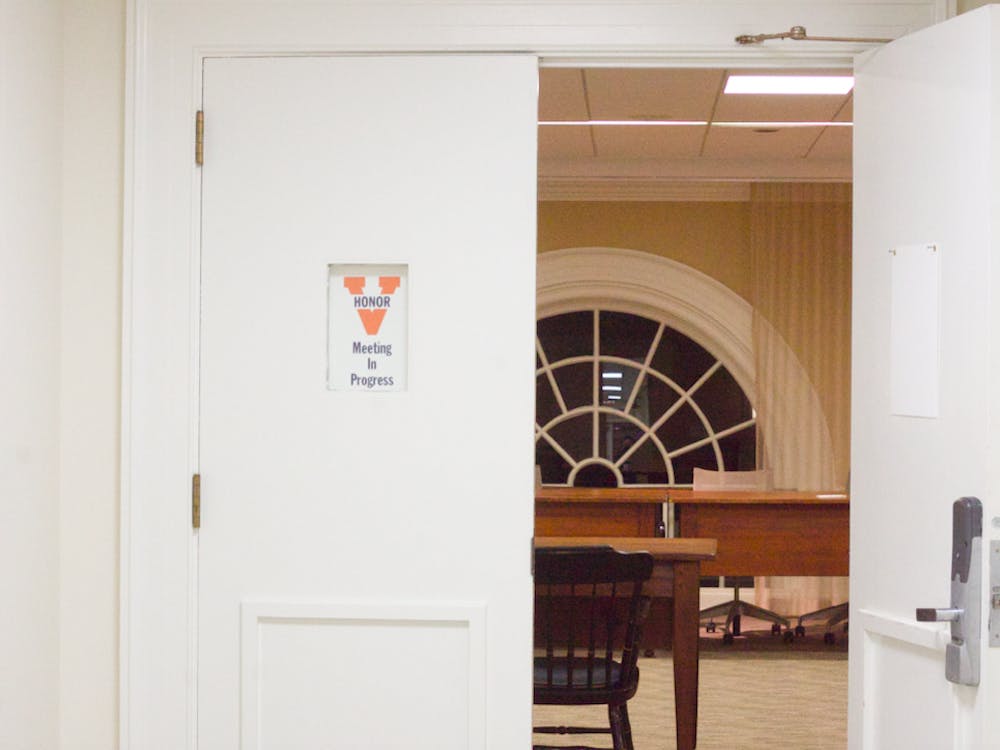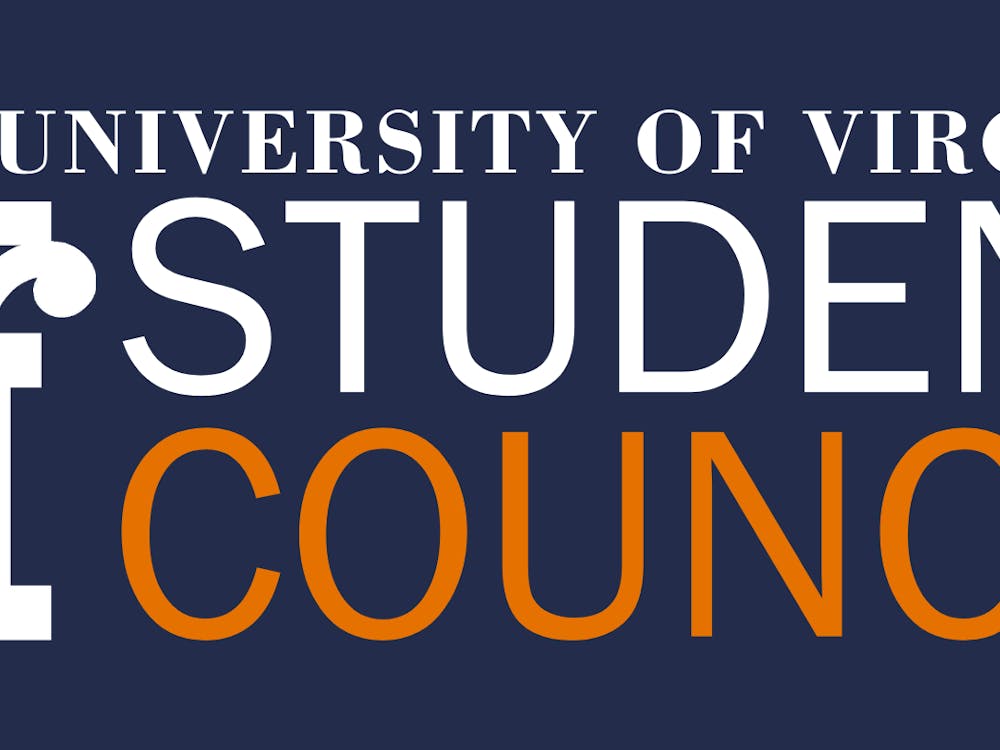In the past months, we have witnessed an impressive rise in the polls from businessman Andrew Yang, who quite literally started out at a statistical zero percent and is now viewed as a serious contender in many of the early Democratic primary battlegrounds. Much of this increase can be attributed to his popularity amongst young voters, who he believes resonate greatly with his technocratic, logical approach to politics. However, contrary to the racially charged rhetoric that he often espouses, simply being Asian doesn’t make his policies any less fiscally absurd, which is a fact that many of his most ardent supporters seem to be overlooking.
The central philosophy of his platform is what Yang likes to refer to as a freedom dividend — which I will admit is a clever way of juxtaposing the failed philosophy of universal basic income with the palatable American ideal of freedom. Regardless of the title though, it is nothing more than a $1,000 monthly lump sum that would theoretically be paid out to every adult in the United States, regardless of working status, class or race. He is such a believer of this policy that his campaign has promised to pilot the program with 12 families across the United States. Seeing as Yang often asserts himself as a lover of mathematics, let’s go ahead and work out these numbers for ourselves.
As of 2018, there are roughly 253 million adults in the United States, and at a rate of $1,000 per month — $12,000 per annum — this would come out to a cost of over three trillion dollars annually, which is more than twice as much as total projected federal discretionary spending in 2020. His platform starts to crumble when one considers this exorbitant cost, and the solutions he presents to pay for these services are baseless and founded only in vacuous theory. And that is without even considering his numerous other trillion-dollar legislative proposals which would need a massive amount of funding, such as Medicare for All.
But again, instead of offering you empty platitudes like Mr. Yang, let us instead examine the numbers behind his proposed funding. The first source of income he describes would be savings from the $600 billion we spend for welfare programs, food stamps, disability, etc. as eligibility is reduced for recipients of the freedom dividend. However, a 2013 CATO Institute study reveals that the majority of U.S. states pay more than double the value of the dividend in individual welfare benefits, and even the state with the lowest figure — Mississippi at $16,984 annually — pays significantly more than the $12,000 that Yang promises. Thus, according to his own logic, Yang’s proposition would either strip the poor of thousands of dollars in benefits or the savings would be a mere fraction of what he claims.
He references a basic value-added tax as another source of income, though anyone with the faintest grasp of macroeconomics can understand how this would be mostly offset by a resulting increase in the price level of products, job loss and slowed economic growth. He also cites increased taxation on tech giants like Amazon, but again, this argument is asinine given that the total annual revenue of the tech industry is roughly a tenth of the cost of the dividend. When one considers all of these haphazard assertions, it becomes clear that behind the veil of sagacity, Yang is nothing more than a snake oil salesman — a charlatan claiming to possess a technocratic mandate.
However, I take issue not just with the quantitative aspect of his proposal, but also the philosophy behind it. He claims that manufacturing jobs are fleeing the country — which is true — but it’s nothing new as this has been happening for the better part of the last century. Currently, nearly 80 percent of private sector jobs in our country are service-based, and that number is still on the rise. As manufacturing jobs become obsolete or outsourced, new service-based jobs are in turn created — such as the over 700,000 vacant tech positions in our country — through a common economic process known as creative destruction. Thus, even though U.S. manufacturing will never be what it once was, new industries and job opportunities will arise, and I think there is no better proof of this statement than the record-low 3.7 percent unemployment that we are experiencing. Yes, many jobs in old industries are dying out, but it’s clear that people aren’t having much trouble finding new ones.
I believe that the key to this problem in the long term is to simply implement tech-focused coursework in public schools from a young age. Our next generation of workers should be trained and prepared for changing job markets, not simply given a handout and told to sit on their bums at home, which Yang’s policy would heavily encourage. Perhaps in a few centuries, the concept of universal basic income may hold some merit, when technology is so advanced that there is truly little need for human labor. But until such a day comes, unsubstantiated, illogical legislative proposals like the “freedom dividend” have no place in rational politics. Instead of glorifying pseudo-intellectuals like Yang, the Democratic party should embrace sensible moderate policy, especially if they want any hope of winning in 2020.
Milan Bharadwaj is an Opinion Columnist for The Cavalier Daily. He can be reached at opinion@cavalierdaily.com.






